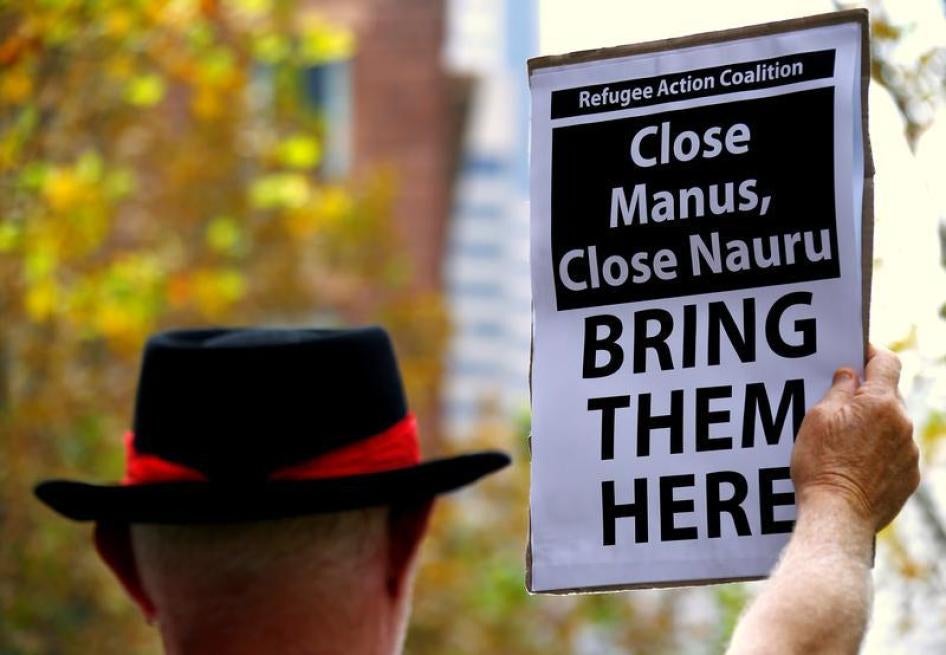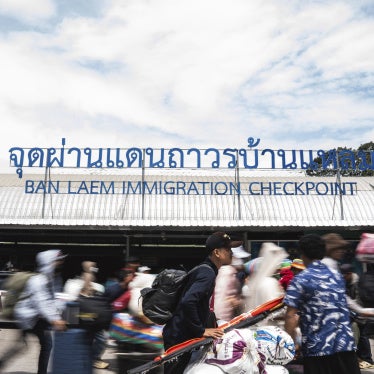This week, the United Nations Committee on Economic, Social and Cultural Rights reviewed Australia’s asylum policy. Once again, Australia’s officials were both disingenuous and unconvincing in their appearance before the committee, which monitors state compliance with the International Covenant on Economic, Social and Cultural Rights.
The committee’s findings reinforce what many observers, including Human Rights Watch, have repeatedly concluded: offshore “processing” means asylum seekers and refugees are held in deplorable conditions for years on end, with little idea of if or when they will be able to leave. They suffer a raft of human rights violations that significantly affect their mental and physical well-being.
Since 2012, the Australian government has forcibly transferred hundreds of refugees and asylum seekers to Papua New Guinea (PNG) and the tiny Pacific island nation of Nauru for "regional processing." Approximately 1,200 men, women, and children currently remain in Nauru, and about 900 men in PNG.
Australia has repeatedly disavowed responsibility for these people. Last month, Richard Johnson, Australia’s representative for immigration matters, denied more than once that Australia had effective control over the asylum seekers in Nauru and PNG, claiming the centers are governed and administered by PNG and Nauru under their laws. The UN committee confirmed the opposite: Australia indeed had effective control.
Australia’s officials and contractors carried out the forced transfers of asylum seekers on airplanes paid for by Australia. Furthermore, the government pays for all aspects of the “processing” operations on Nauru and PNG, and makes all operational decisions regarding these facilities.
In its findings, the committee expressed concern and alarm at Australia’s “punitive approach” to those who arrive by boat and the transfer of asylum seekers to PNG and Nauru for processing of asylum claims. It highlighted the acute isolation, exposure to violence, suicide attempts, and limited access to services such as health care and education refugees and asylum seekers must endure.
The committee urged the Australian government to stop processing asylum claims offshore, and to close the regional processing centers, repatriate all concerned to Australia, and process their asylum claims there.
Under a new committee procedure, Australia now has 18 months to respond and act on their recommendations.
Even 18 months is far too long. The Australian government should move immediately to close the centers, take in all asylum seekers and refugees held offshore, and end offshore processing permanently.










